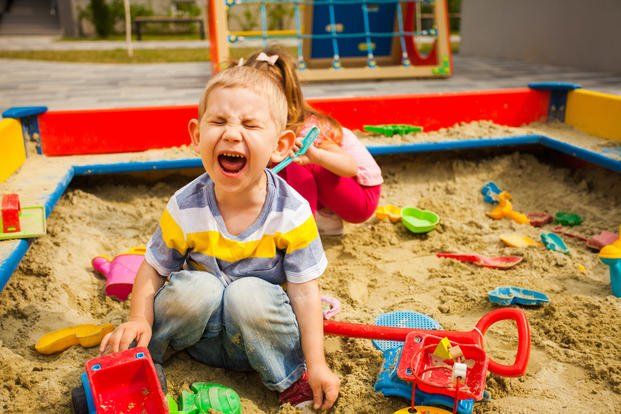Kids are selfish.
They're, like, ridiculously selfish.
Self-absorbed.
Inconsiderate.
Narcissistic.
Need I go on?
I think I could literally be bleeding to death on the floor, and one of my kids would come up to me screaming that she needed a bandage for a non-existent scrape.
Bill Cosby (I know, I know) had a great stand-up routine a long time ago where he quotes his wife, who is home with the children, pleading with him over the phone, saying, "These are not reasonable people!"
(I wanted to provide a link to that routine here but the first 7,000 pages of search results on Google were about rape. You'll just have to take my word that it was a very funny routine.)
There may be no creature on Earth more selfish than a newborn human. They demand food every three or four hours by screaming as loud as they can. They don't even care that mommy's nipples are bleeding, or that's she's so tired her shoes don't match, or that everyone else in the house is subsisting on dry cereal. That's how selfish we all come into this world.
Babies have a sort of tunnel vision that only allows them to see their own interests. My friends with teenagers tell me that this condition stays with them well into their 20s. But their tunnels can be widened. We can train them, bit by bit, to see outside of themselves. We should train them to do this. We must train them to do this.
Really, we must. Because there's a very good chance (especially considering the current state of Social Security) that we're going to need to depend on these children someday. It behooves us to make them care about people other than themselves.
If we're doing parenting right, our children will get less selfish as they get older. But that's so much easier said than done.
The bad news? As Must-Have Parents, our kids might be even more likely to be selfish. According to some experts, parents can unintentionally encourage selfishness in children by doing things like:
- Spoiling the child out of feelings of guilt, compensation and avoidance.
- Not disciplining and setting limits often enough.
- Modeling selfishness (i.e., the child sees us acting selfishly).
- Allowing situations where a child feels neglected.
- Allowing situations where a child is jealous of a partner or sibling.
- Allowing situations where a child is angry, anxious, or depressed.
These are also known as, being one parent trying to do the job of two.
But children are also natural pleasers. They really do want to make us happy. We can use that to teach them to be empathetic and to help them develop a giving nature.
Here's how:
- Model generosity. Let your child see you give. Sure, your child already sees you giving to him, but odds are good that he doesn't notice that. So let him see you give to others. And then, when you're out of earshot of the person you gave to, tell them why you gave to that person. Give yourself some credit. Kids love getting credit. Eventually, your child will want to get some credit for being generous for himself.
- Talk about other people's wants and needs. Let your child know that you think about what other people want and need, not just your own needs.
- Consistently show that you disapprove of selfishness and make that a family value. You can say things like, "I don't like how you are not sharing that toy. In our family we share."
- But also let your child feel the pain of peer correction. Don't intervene every time. His friends will show him (less delicately than you) what they think of his not sharing. Let him feel the sting of their corrections, too. (Unless they're hitting, of course.)
- Praise him when he gets it right. Praise effusively. Let him know how impressed and proud you are that he did something selfless. He'll catch on and start looking for ways to get that praise again.
- Be patient. There may be a reason why your child doesn't want to share. If it's because he's angry, anxious or depressed, try to help him with those issues. You can (and should) still correct the selfish behavior, but you can model empathy by listening as he tells you what's bothering him.





















